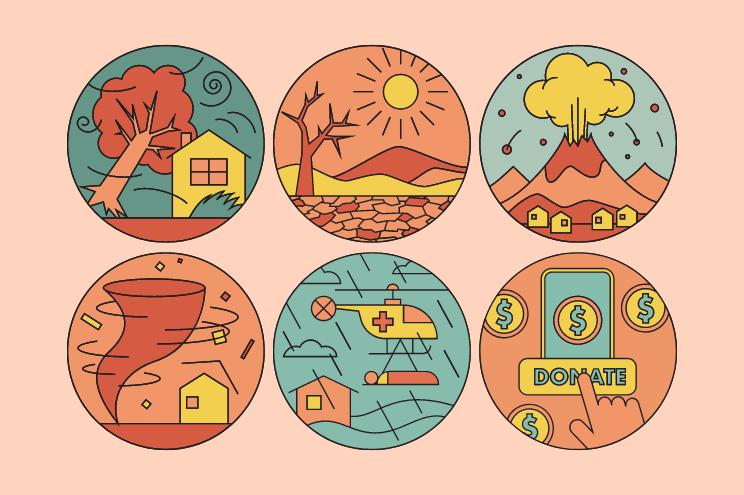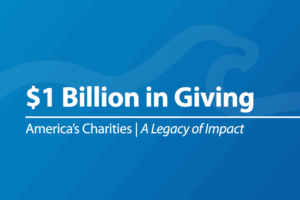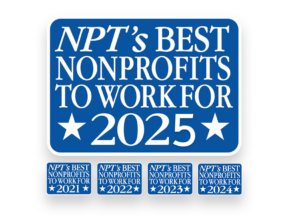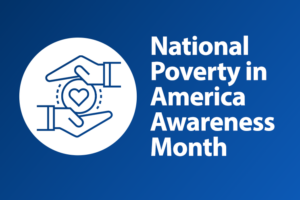Amber Greviskes, Give To Get | June 21, 2023
Disaster Relief: Don’t Rush!
Climate change is real, and while we all want to help when disaster strikes, sometimes rushing in is the wrong thing to do.
We need only to look at the increasing number of a wide range of natural disasters to see the impact of climate change. In 2022, the United States experienced 18 separate weather and climate disasters costing at least $1 billion. Among the disasters that caused this destruction were a winter storm / cold wave; a wildfire event, which included multiple fires; a drought and heat wave; a flood; two tornado outbreaks; three tropical cyclones; and nine severe weather / hail events.
Unfortunately, 2022 was not an anomaly. Both 2021 and 2020 featured 20 or more weather and climate disasters, signaling that this becoming the new normal.
But before you lace up your boots to help those who are impacted by a natural disaster, consider these actions instead:
Prepare if you’re in an area that could be impacted. The first job for anyone in a disaster is to not become someone in need. The fewer people that need help allows emergency crews to focus on the truly desperate. One thing to do is pack a “go bag” ahead of time. You’ll need first aid supplies, food, and water for several days as well as identification, prescriptions, and more. The Centers for Disease Control and Prevention can help you create kits for your home and car, too.
Send money. Volunteers who rush to the scene of disasters can often become hurt or stranded themselves. Supplies – even donations like food and water – can get delayed in transit and cause storage and distribution issues in troubled areas. Consider a monetary donation, which can get to individuals quickly, and can be used to purchase what’s needed when it’s needed. Monetary donations can also assist both in the immediate aftermath as well as through the rebuilding process. The America’s Charities team can help you get started with these types of fundraising campaigns.
Give blood now. Blood is always needed, especially in the years after the height of the pandemic. The pandemic kept many regular blood donors from giving because they were afraid of contracting the coronavirus. The number of blood donors has not returned to pre-COVID levels. Without an adequate blood supply, life-saving surgeries may be cancelled and individuals who would normally be able to survive the car accidents that often occur alongside natural disasters may not make it.
House displaced friends and family members. In the immediate aftermath of a disaster, housing can be nearly impossible to find. One way to assist is to open your home to friends or family members while they wait to assess the damage to their homes or find suitable alternative housing.
Foster a furry friend. Animal shelters in disaster areas must often be emptied quickly. Consider fostering one of the shelter’s dogs or cats to ensure that they remain safe during the worst of the crisis. You can also assist a friend or family member by housing his or her pet, which may not be welcomed at a temporary shelter or hotel where your friend or family member may be living.

Get Resources and Insights Straight To Your Inbox
Explore More Articles
$1 Billion in Giving: America’s Charities Reaches a Historic Milestone
A testament to the impact of mobilizing the power of giving. We have some extraordinary news to share. In 2025, America’s Charities crossed a threshold that few organizations…
America’s Charities Named ‘Best Nonprofit To Work For’ For Fifth Consecutive Year
Washington, D.C. – April 1, 2025 – America’s Charities, the nonprofit that mobilizes the power of giving as a leading provider of volunteering, workplace giving,…
Get Resources and Insights Straight To Your Inbox
Receive our monthly/bi-monthly newsletter filled with information about causes, nonprofit impact, and topics important for corporate social responsibility and employee engagement professionals, including disaster response, workplace giving, matching gifts, employee assistance funds, volunteering, scholarship award program management, grantmaking, and other philanthropic initiatives.




